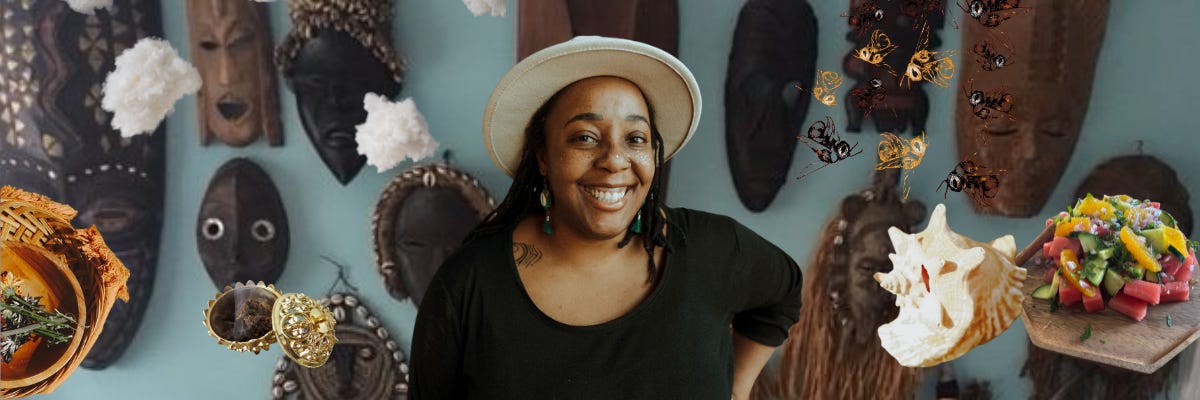KidLit Newsletter for Running Press Kids
The 2024 Kidkit Newsletter I wrote for Running Press Kids (Hachette)
Being both an educator and a creator are two of the most political spaces in society one can occupy. What one chooses to share or not with future generations in their classroom or the messages amplified in their chosen medium(s) directly influence our world. At the core of each is the potential of possibility, showcasing and imagining all that we can be and become. Literature, media, and the characters who inhabit the screens and pages, who we fall in love with, laugh with, cry with, and grow older, impact our lives; They help to mold us and shape how we view the world. They contribute to transformative cultures that crisscross social, political, and aesthetic lines.
Black creativity has been and remains a pillar of creative and cultural life in the United States. From hiding symbols of Yoruba religion in Christian iconography to singing of a liberated future in negro-spirituals, Black people continue to use creativity to carve out spaces of love, healing, and reclamation. Invention serves as a means of resistance against systems built to restrict and cage our freedom.
That intersectional space is where I live with my work as a griot, activist, and weaver — deep in the sphere of creative resistance.
Black art has shaped and shifted American culture, calling out societal ills and sparking movements for Black joy and liberation. These spaces allow artists and beholders alike to revel in the richness of Blackness. In challenging societal norms and amplifying own voices, creativity can shift the narrative, dismantling untruths and creating a world where Black bodies can rest instead of fight. Through these acts of resistance — or artivism — Black creativity can flourish and becomes an integral part of the fight for liberation for all.
While artivism in children's literature is crucial for young readers, this call is just as vital for adults who engage with these stories. As adults, we are not exempt from the need for these narratives' radical softness and transformative fierceness. This work strives to balance warnings around human negligence and moving in stark individualism, with the belief that situations can improve through the power in collective action locally and regenerative solutions globally.
I have a dream. I dream of BIPOC children recognizing the magic of dreaming and the importance of their dreaming. For me, dreaming is a massive part of imagining the world our Ancestors deserved and the future our children need. Described by Kirkus as stirring words and images for budding activists and leaders, Keep Dreaming, Black Child is both my love letter and resistance towards shedding limitations on what we can be and believing in how our dreams can transform our cosmos.
I speak towards imagining and dreaming beyond being "the Black Walt Disney" or "the Black Steven Spielberg" when hearing the call of film work, "the Black Steve Jobs" or "the Black Bill Gates" when hearing to give to the world as a high-tech innovator. I call for an era of unapologetic works of art, media, and literature that foster radical inclusion and for a society willing to promote, show, model, engage in, and uplift these works. I support everyone getting into good trouble – fighting in the ways that play to their strengths towards a sustainable, regenerative, just, decolonized, Indigenized, and liberated world.






Cheers to getting into ✨good trouble✨!